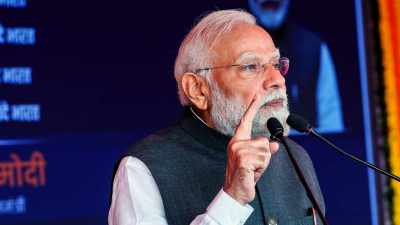Awaiting the first vulture chick indoors
If you are worried about the rapid decline in India’s vulture population, this may cheer you up. In less than a month from now, Asia...

If you are worried about the rapid decline in India’s vulture population, this may cheer you up. In less than a month from now, Asia’s only vulture conservation and breeding centre near Pinjore is likely to witness the first ever captive breeding of the endangered white-backed (Gyps bengalensis) vulture.
Officials at the centre, run by the Bombay Natural History Society (BNHS), say one of their 22 white-backed vultures has shown signs of nesting and is getting into the circle for hatching. ‘‘We hope for the first egg some time in February,’’ Dr Vibhu Prakash, senior scientist of BHNS at the centre, told The Indian Express.
The majority of breeding occurs between November and February when females lay a single egg which needs incubation for almost two months. After hatching, the chicks remain in the nest for two-three months.
The centre is keeping a close eye on the six-year-old female vulture through close circuit television cameras installed in the vulture enclosures. ‘‘We have a numbered ring on the feet of the would-be mother vulture and are monitoring her moves. We are careful not to disturb her,’’ said Dr Prakash.
• White-backed vultures are classified as critically endangered on IUCN redlist.
• With a maximum lifespan of 60 years, vultures are highly social and pair for life.
• They are voracious feeders and can consume a fresh bullock carcass in just 40 minutes





- 01
- 02
- 03
- 04
- 05


























